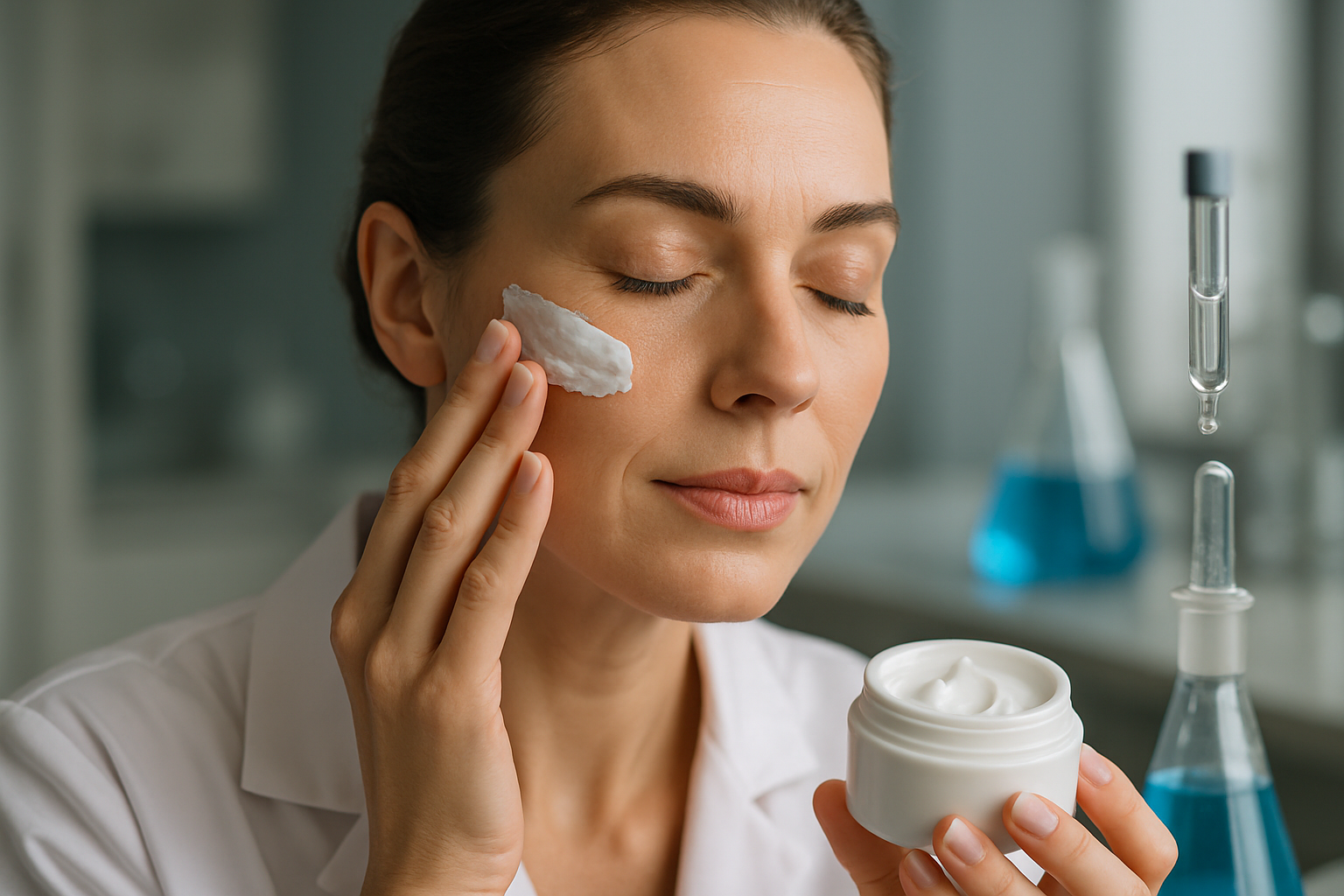Bioactive Peptides: The Next Frontier in Skincare
The beauty industry is constantly evolving, with new ingredients and technologies emerging to revolutionize our skincare routines. One of the most exciting developments in recent years is the rise of bioactive peptides. These powerful molecules are poised to transform the way we approach skin health and anti-aging. Peptides, short chains of amino acids, have long been known to play crucial roles in our bodies. However, their potential in skincare is only now being fully realized. As we delve into the world of bioactive peptides, we'll explore their unique properties, the science behind their effectiveness, and how they're reshaping the beauty landscape.

The effectiveness of bioactive peptides lies in their ability to mimic naturally occurring peptides in our skin. As we age, our bodies produce fewer of these beneficial peptides, leading to visible signs of aging. By applying bioactive peptides topically, we can potentially stimulate collagen production, improve skin elasticity, and reduce the appearance of fine lines and wrinkles.
Types of Bioactive Peptides in Skincare
There are several categories of bioactive peptides used in skincare, each with its unique benefits:
- Signal peptides: These peptides can stimulate collagen and elastin production, improving skin firmness and elasticity.
- Carrier peptides: These help deliver trace minerals to the skin, which are essential for wound healing and overall skin health.
- Neurotransmitter-inhibiting peptides: Often referred to as “Botox-like” peptides, these can temporarily reduce muscle contractions, potentially minimizing the appearance of expression lines.
- Enzyme-inhibitor peptides: These peptides can help prevent the breakdown of existing collagen and elastin in the skin.
- Antimicrobial peptides: These have the potential to combat acne-causing bacteria and protect the skin from harmful microorganisms.
The Benefits of Bioactive Peptides in Skincare
Incorporating bioactive peptides into skincare routines can offer a wide range of benefits:
- Improved skin texture and tone: By stimulating collagen production, peptides can help smooth out fine lines and wrinkles, giving skin a more youthful appearance.
- Enhanced skin barrier function: Some peptides can strengthen the skin’s natural protective barrier, helping to lock in moisture and protect against environmental stressors.
- Reduced inflammation: Certain peptides have anti-inflammatory properties, which can help calm irritated skin and reduce redness.
- Increased hydration: Some peptides can improve the skin’s ability to retain moisture, leading to plumper, more hydrated skin.
- Potential acne-fighting properties: Antimicrobial peptides may help combat acne-causing bacteria, offering a new approach to treating blemish-prone skin.
Incorporating Bioactive Peptides into Your Skincare Routine
To maximize the benefits of bioactive peptides, it’s essential to use them correctly:
- Choose the right product: Look for serums or moisturizers that list peptides as one of the top ingredients. These formulations are more likely to contain an effective concentration of peptides.
- Apply to clean skin: For optimal absorption, apply peptide-containing products to freshly cleansed skin.
- Layer appropriately: Apply peptide products before heavier creams or oils, which could potentially block their absorption.
- Be consistent: Like most skincare ingredients, peptides require consistent use over time to see results. Incorporate them into your daily routine for best effects.
- Combine with other beneficial ingredients: Peptides work well in conjunction with other skincare staples like antioxidants and hyaluronic acid.
The Future of Bioactive Peptides in Beauty
As research into bioactive peptides continues to advance, we can expect to see even more innovative applications in the beauty industry:
- Customized peptide formulations: With advancements in technology, we may soon see personalized peptide blends tailored to individual skin concerns.
- Improved delivery systems: New technologies could enhance the penetration and efficacy of peptides, potentially leading to more dramatic results.
- Expanded applications: While currently focused on facial skincare, peptides could find applications in body care, haircare, and even color cosmetics.
- Combination therapies: Future treatments may combine peptides with other cutting-edge technologies like light therapy or microcurrent devices for enhanced results.
- Natural peptide alternatives: As sustainability becomes increasingly important in beauty, we may see a rise in plant-derived peptides that offer similar benefits to their synthetic counterparts.
The world of bioactive peptides in skincare is still relatively young, with new discoveries and applications emerging regularly. As our understanding of these powerful molecules grows, so too does their potential to revolutionize our approach to skincare and anti-aging. By harnessing the power of bioactive peptides, we may be able to achieve healthier, more youthful-looking skin without resorting to invasive procedures or harsh treatments. As always, it’s essential to approach new skincare trends with a critical eye and consult with dermatologists or skincare professionals to determine the best approach for your individual needs. With continued research and innovation, bioactive peptides are poised to become a cornerstone of modern skincare, offering a science-backed approach to achieving our best skin yet.




